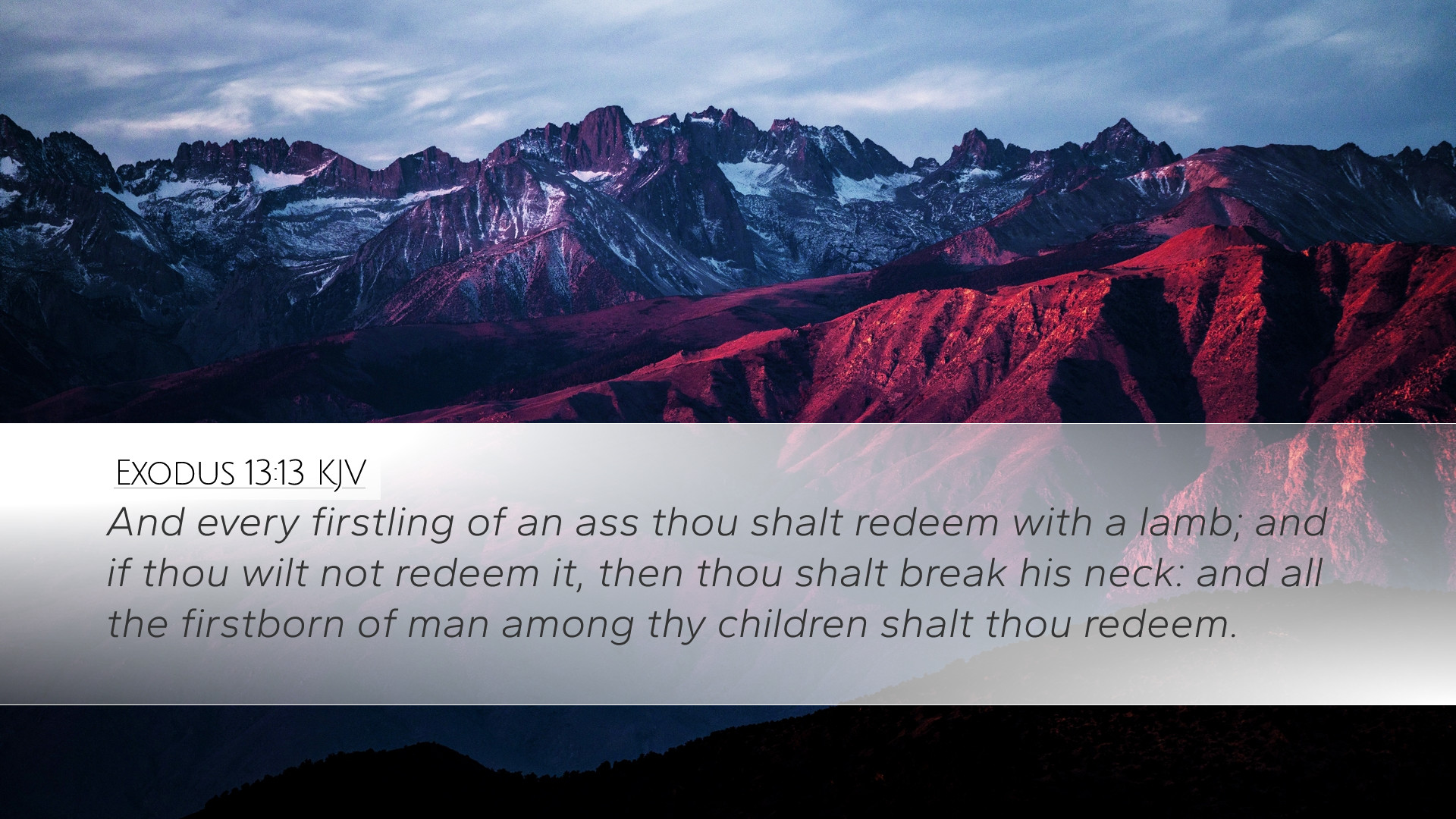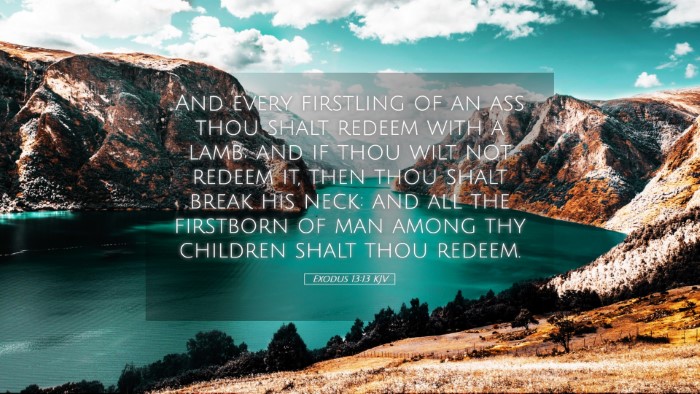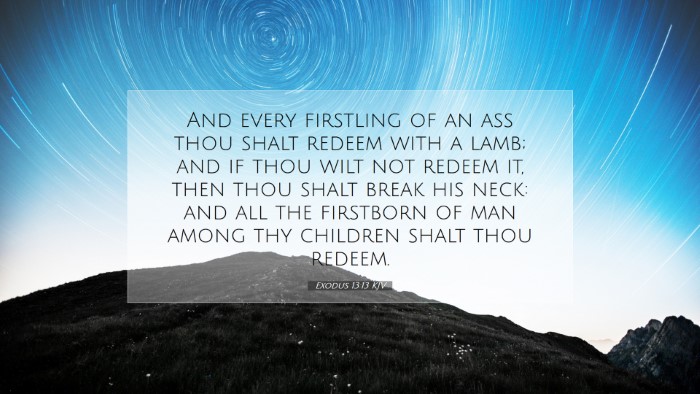Exodus 13:13 Commentary
Exodus 13:13 states: "And every firstborn of man among thy sons shalt thou redeem." This verse is pivotal in establishing the theme of redemption throughout the biblical narrative. Below, we summarize insights from notable public domain commentaries to provide theological depth and practical application for pastors, students, and scholars.
Contextual Overview
Exodus 13 serves as a transition from the miraculous exodus of Israel from Egypt to the establishment of laws that govern their newfound identity as God's chosen people. This chapter emphasizes the sanctity of the firstborn, a concept deeply rooted in Jewish tradition.
Matthew Henry's Commentary
Matthew Henry emphasizes the significance of the firstborn, highlighting their representation of strength and prominence in a family.
He notes that in redeeming the firstborn, the Israelites are reminded of God's deliverance during the final plague in Egypt when every firstborn of the Egyptians was killed, while those marked with the blood of the lamb were spared. This act is seen not just as a requirement, but as a continual reminder for Israel of their deliverance.
- Redemption as a Theme: Henry connects this passage to the larger biblical theme of redemption, demonstrating how God delivers His people from bondage.
- Symbolism of the Lamb: The connection to the Passover lamb symbolizes Christ’s sacrifice, indicating the ultimate redemption believers experience through Him.
Albert Barnes' Notes
Albert Barnes provides a detailed analysis of the word "redeem," focusing on the idea of substitution.
- Meaning of Redemption: Barnes explains that the essence of redemption here implies that the firstborn, seen as holy, must either be offered to God or redeemed (i.e., bought back) with a sacrifice. This captures the profound sense of valuing the life entrusted to the family.
- Practical Implications: Barnes suggests that this practice taught a reliance on God’s mercy and a continual recognition of God’s saving acts in their history, thereby instilling faith in future generations.
Adam Clarke's Commentary
Adam Clarke dives into the practical aspects of the firstborn redemption process.
- Historical Custom: He discusses historical context, explaining that the practice of redeeming the firstborn reflects a prevalent custom among the Israelites, reinforcing God's claim over their lives.
- Understanding Family Dynamics: Clarke articulates how this process not only had economic implications but also served to strengthen family and societal ties, as it involved community engagement.
Theological Implications
The verse sheds light on the overarching narrative of salvation. The idea that the firstborn must be redeemed encapsulates the sacrificial nature of God's covenant with Israel, foreshadowing the coming Messiah who would provide the ultimate redemption for humanity.
- The Firstborn's Significance: The firstborn became a symbol of precedence and a subtle reminder of Christ's position as the firstborn of creation (Colossians 1:15).
- Continuity of Faith: This act fosters a communal memory of God’s faithfulness, encouraging Israel to testify to their children and future generations, effectively embedding the story of redemption within their cultural identity.
Pastoral Applications
For pastors and leaders in the church, Exodus 13:13 serves as an urgent reminder of the necessity of teaching and reinforcing the principles of redemption within their congregations.
- Teach about Redemption: Educators can harness this narrative to draw parallels to the New Testament themes of redemption through Christ.
- Memorialize God's Deliverance: Church practices that commemorate God’s deliverance can be instituted, fostering a culture of gratitude and remembrance.
- Engage Families: Encourage families within the congregation to understand their spiritual heritage and to celebrate God's acts in their lives through personal testimonies.
Conclusion
Exodus 13:13 not only outlines the directions for redeeming the firstborn but also encapsulates the essence of God's covenant relationship with His people. By understanding this passage deeply through the lenses of commentators like Henry, Barnes, and Clarke, we can garner a richer appreciation for the sacrificial love God demonstrates, which ultimately fulfills its promise in Jesus Christ.


